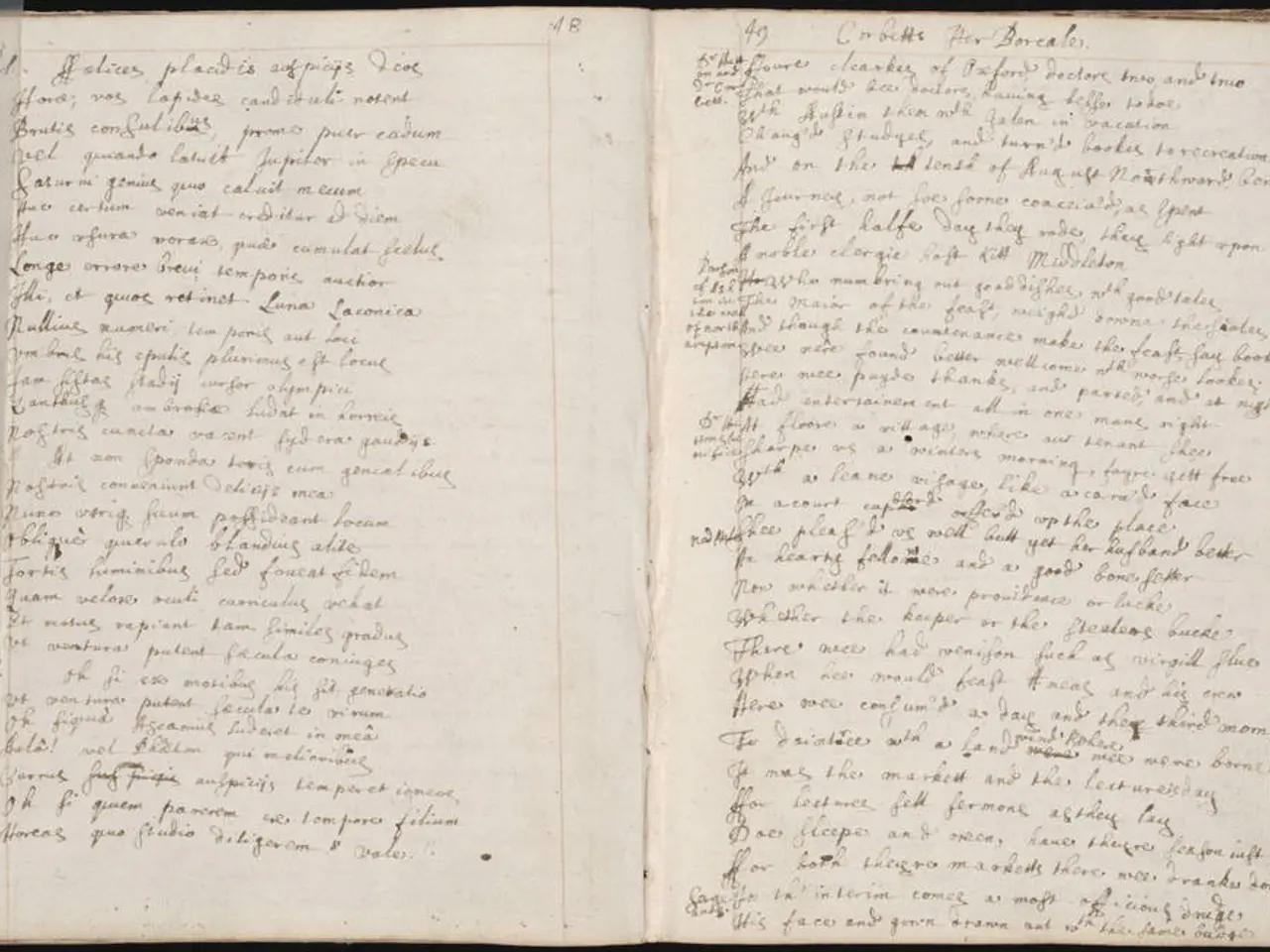A 2020 novel by Kaśka Bryla, titled "My Father, the Gulag, the Crow, and Me"
In the heart of Leipzig, during a pandemic-stricken summer of 2020, Kaśka Bryla penned a deeply personal and evocative novel, "My Father, the Gulag, the Crow, and I." Published by Residenz Verlag in 2025, the book weaves a powerful tale of memory, trauma, and family history.
The narrative is centred around the life of the author's father, a man who endured the harrowing experiences of the Soviet Gulag after a trumped-up charge. His story is interwoven with the author's own struggles during her long COVID-19 recovery, creating a poignant connection between past and present.
The crow in the title serves as a symbol of this connection, representing the enduring presence of the past in the present. Interestingly, a young crow named Karl, who joins the trailer park community, forms an intense bond with the sick narrator, adding another layer of empathy to the story.
The author's father was not only a survivor of the Gulag, but also a participant in the Polish underground army during the invasion of Poland in 1939. The novel is set in the region known as "Bloodlands," where the greatest massacres took place during World War II.
Throughout the novel, the author reflects on the complex situation that leads to persistent hatred against minorities and its consequences. She also reveals that she has inherited her father's drive for freedom and unwavering will to assert oneself, a strength that carries into her own life during her long COVID-19 recovery.
The author's caravan on a Connewitz campsite becomes a sort of hermitage due to the pandemic. Here, she finds solace and support from the women in the trailer park community, who rally around her during her difficult recovery.
One of the unique aspects of the novel is its exploration of Long Covid from the perspective of someone who has experienced it. The narrator's virus-induced symptoms affect her for months, making her quickly exhausted and her lungs less efficient. Despite these challenges, she perseveres, finding strength in the memories of her father and the support of her community.
As Karl learns to fly while caring for the narrator, the novel takes readers into a summer that already feels like distant history, even though at the time, no one knew if it would turn out well. The book, written in just one summer, seems to be the result of three years of hard work behind the scenes.
In retrospect, the author realises that the novel is not just a historical examination or a poetic meditation on identity, survival, and the scars left by political repression. It is also a testament to the resilience of the human spirit, a reminder that even in the face of adversity, we can find the strength to carry on.
- Kaśka Bryla's novel, "My Father, the Gulag, the Crow, and I," delves into the intertwining themes of lifestyle, education-and-self-development, and personal-growth, as the author reflects on the complexities of her father's past, her own struggles during long COVID-19 recovery, and the unwavering spirit of resilience that emerges from both experiences.
- The author's narrative not only offers a historical examination and a poetic meditation on identity, survival, and the scars left by political repression but also serves as an empowering testimonial of the enduring human spirit, showcasing the transformative potential of education-and-self-development and personal-growth in the face of adversity.




